We know that ghosts cannot speak until they have drunk blood; and the spirits which we evoke demand the blood of our hearts.
—Ulrich von Wilamowitz-Moellendorff, Greek Historical Writing, and Apollo (1908)
Thirteen years ago, when I lived briefly in Glasgow, I made it a habit to regularly attend the theater. An unheralded cultural mecca in its own right, overshadowed by charming, medieval Edinburgh to the east, the post-industrial Scottish capitalI was never lacking in good drama. Also, they let you drink beer during performances. Chief among those plays was a production of Sophocles’s Antigone, the final part of his tragic Theban Cycle, and one of the most theorized and staged of dramas from that Athenian golden age four centuries before the Common Era, now presented in the repurposed 16th-century Tron Church. Director David Levin took the Attic Greek of Sophocles and translated it into the guttural brogue of Lowlands Scotts, and in a strategy now deployed almost universally for any production of a play older than a century, the chitons of the ancient world were replaced with business suits, and the decrees of Creon were presented on television screen, as the action was reimagined not in 441 BCE but in 2007.

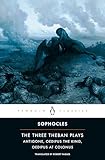


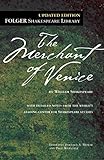
 Enough to remind me of that headline from The Onion which snarked: “Unconventional Director Sets Shakespeare Play in Time, Place that Shakespeare Intended.” The satirical newspaper implicitly mocks adaptations like Richard Loncraine’s Richard III which imagined the titular character (devilishly performed by Ian McKellen) as a sort of Oswald Mosley-like fascist, and Derek Jarman’s masterful version of Christopher Marlowe’s Edward II, which makes a play about the Plantagenet line of succession into a parable about gay rights and the Act Up movement. By contrast, The Onion quips that its imagined “unconventional” staging of The Merchant of Venice is one in which “Swords will replace guns, ducats will be used instead of the American dollar or Japanese yen, and costumes, such as…[the] customary pinstripe suit, general’s uniform, or nudity, will be replaced by garb of the kind worn” in the Renaissance. The dramaturgical perspective behind Levin’s Antigone was definitely what the article parodied; there was nary a contorted dramatic mask to be found, no Greek chorus chanting in dithyrambs, and, as I recall, lots of video projection. The Onion aside, British philosopher Simon Critchley would see no problem with Levin’s artistic decisions, writing in his new book Tragedy, the Greeks, and Us that “each generation has an obligation to reinvent the classics. The ancients need our blood to revise and live among us. By definition, such an act of donation constructs the ancients in our image.”
Enough to remind me of that headline from The Onion which snarked: “Unconventional Director Sets Shakespeare Play in Time, Place that Shakespeare Intended.” The satirical newspaper implicitly mocks adaptations like Richard Loncraine’s Richard III which imagined the titular character (devilishly performed by Ian McKellen) as a sort of Oswald Mosley-like fascist, and Derek Jarman’s masterful version of Christopher Marlowe’s Edward II, which makes a play about the Plantagenet line of succession into a parable about gay rights and the Act Up movement. By contrast, The Onion quips that its imagined “unconventional” staging of The Merchant of Venice is one in which “Swords will replace guns, ducats will be used instead of the American dollar or Japanese yen, and costumes, such as…[the] customary pinstripe suit, general’s uniform, or nudity, will be replaced by garb of the kind worn” in the Renaissance. The dramaturgical perspective behind Levin’s Antigone was definitely what the article parodied; there was nary a contorted dramatic mask to be found, no Greek chorus chanting in dithyrambs, and, as I recall, lots of video projection. The Onion aside, British philosopher Simon Critchley would see no problem with Levin’s artistic decisions, writing in his new book Tragedy, the Greeks, and Us that “each generation has an obligation to reinvent the classics. The ancients need our blood to revise and live among us. By definition, such an act of donation constructs the ancients in our image.”
Antigone, coming from as foreign a culture as it does, still holds our attention for some reason. The story of the titular character—punished by her uncle Creon for daring to defy his command that her brother Polynices’s corpse be left to fester as carrion for the buzzards and worms in the field where he died because he has raised arms against Thebes—would seem to have little to do with Tony Blair’s United Kingdom. When a Glaswegian audience hears Sophocles’s words, however, that “I have nothing but contempt for the kind of governor who is afraid, for whatever reason, to follow the course the he knows is best for the State; and as for the man who sets private friendship above the public welfare—I have no use for him either” a bit more resonance may be heard. Critchley argues that at the core of Greek tragedy is a sublime ambivalence, an engagement with contradiction that classical philosophy can’t abide;as distant as Antigone’s origins may be, its exploration of the conflict between the individual and the state, terrorism and liberation, surveillance and freedom seemed very of the millennium’s first decade. Creon’s countenance of the unthinkable punishment of his niece, to be bricked up behind a wall, was delivered in front of a camera as if George W. Bush announcing the bombing of Iraq from the Oval Office on primetime television. “Evil sometimes seems good / To a man whose mind / A god leads to destruction,” Sophocles wrote. This was a staging for the era of the Iraq War and FOX News, of the Patriot Act and NSA surveillance, and of the coming financial collapse. Less than a year later, and I’d be back in my apartment stateside watching Barack Obama deliver his Grant Park acceptance speech. It was enough to make one think of Antigone’s line: “Our ship of fate, which recent storms have threatened to destroy, has come to harbor at last.” I’m a bad student of the Greeks; I should have known better than to embrace that narcotic hope that pretends tragedy is not the omnipresent condition of humanity.
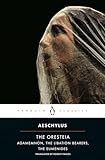
 What could Sophocles, Euripides, and Aeschylus possibly have to say in our current, troubled moment? Tragedy, the Greeks, and Us is Critchley’s attempt to grapple with those disquieting 32 extant plays that whisper to us from an often-fantasized collective past. What survives of Greek tragedy is four less plays than all of those written by Shakespeare; an entire genre of performance for which we have titles referenced by philosophers like Plato and Aristotle, with only those three playwrights’ words enduring, and where often the most we can hope for are a few fragments preserved on some surviving papyri. Critchley emphasizes how little we know about plays like Antigone, or Aeschylus’s Oresteia, or Euripides’s Medea; that classicists often hypothesized that they were born from the Dionysian rituals, or that they focused on satyr psalms, the “song of the goats,” giving tragedy the whiff of the demonic, of the demon Azazel to whom sacrifices of the scapegoat must be made in the Levantine desert.
What could Sophocles, Euripides, and Aeschylus possibly have to say in our current, troubled moment? Tragedy, the Greeks, and Us is Critchley’s attempt to grapple with those disquieting 32 extant plays that whisper to us from an often-fantasized collective past. What survives of Greek tragedy is four less plays than all of those written by Shakespeare; an entire genre of performance for which we have titles referenced by philosophers like Plato and Aristotle, with only those three playwrights’ words enduring, and where often the most we can hope for are a few fragments preserved on some surviving papyri. Critchley emphasizes how little we know about plays like Antigone, or Aeschylus’s Oresteia, or Euripides’s Medea; that classicists often hypothesized that they were born from the Dionysian rituals, or that they focused on satyr psalms, the “song of the goats,” giving tragedy the whiff of the demonic, of the demon Azazel to whom sacrifices of the scapegoat must be made in the Levantine desert.
Beyond even tragedy’s origin, which ancient Greek writers themselves disagreed about, we’re unsure exactly how productions were staged or who attended. What we do have are those surviving 32 plays themselves and the horrific narratives they recount—Oedipus blinded in grief over the patricide and incest that he unknowingly committed but prophetically ensured because of his hubris; Medea slaughtering her children as a revenge on the unfaithfulness of her husband; Pentheus ripped apart by her frenzied Maenads in ecstatic thrall to Dionysius because the Theban ruler couldn’t countenance the power of irrationality. “There are at least thirteen nouns in Attic Greek for words describing grief, lamentation, and mourning,” Critchley writes about the ancients; our “lack of vocabulary when it comes to the phenomenon of death speaks volumes about who we are.” Tragedy, the Greeks, and Us is Critchley’s attempt to give us a bit of their vocabulary of excessive lamentation so as to better approach our predicament.
Readers shouldn’t mistake Tragedy, the Greeks, and Us as a conservative defense of the canon; this is no paean to the superior understanding of the ancients, nor is its highfalutin’ self-help. Critchley’s book isn’t Better Living Through Euripides. Easy to misread the (admittedly not great) title as an advertisement for a book selling the snake-oil of traditionalist cultural literacy, that exercise in habitus that confuses familiarity with the “Great Books” as a type of wisdom. Rather, Critchley explores the Greek tragedies in all of their strange glory, as an exercise in aesthetic rupture, where the works of Sophocles, Aeschylus, and Euripides configure a different type of space that renders a potent critique against oppressive logic. His task is thus the “very opposite of any and all kinds of cultural conservatism.” Critchley sees the plays not as museum pieces, or as simple means of demonstrating that you went to a college with diplomas written in Latin, but rather as a “subversive traditionalism” that helps us to critique “ever more egregious forms of cultural stupefaction that arise from being blinded by the myopia of the present.” This is all much larger than either celebrating or denouncing the syllabi of St. John’s College; Critchley has no concern for boring questions about “Western Civilization” or “Defending the Canon,” rather he rightly sees the tragedies as an occasion to deconstruct those idols of our current age—of the market, of society, of law, of religion, of state. He convincingly argues that any honest radical can’t afford to ignore the past, and something primal and chthonic calls to us from those 32 extant plays, for “We might think we are through with the past, but the past isn’t through with us.”
Critchley explains that the contemporary world, perhaps even more so than when I watched Antigone in Glasgow, is a “confusing, noisy place, defined by endless war, rage, grief, ever-growing inequality. We undergo a gnawing moral and political uncertainty in a world of ambiguity.” Our moment, the philosopher claims, is a “tragicomedy defined by war, corruption, vanity, and greed,” for if my Antigone was of its moment, then Tragedy, the Greeks, and Us could only have been written after 2016. That year, and the characters it ushered into our national consciousness, can seem a particular type of American tragedy, but Critchley’s view (even while haunted by a certain hubristic figure with a predilection for the misspelled tweet) is more expansive than that. In his capable analysis, Critchley argues that tragedy exists as a mode of representing this chaos; a type of thinking at home with inconsistency, ambiguity, contradiction, and complexity. It’s those qualities that have made the form suspicious to philosophers.
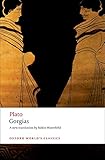
 Plato considered literature in several of his dialogues, concluding in Gorgias that the “effect of speech upon the structure of the soul / Is as the structure of drugs over the nature of bodies” (he wasn’t wrong), and famously having his puppet Socrates argue in The Republic that the just city-state would ban poets and poetry from their affairs for the aforementioned reason. Plato’s disgruntled student Aristotle was more generous to tragedy, content rather to categorize and explain its effects in Poetics, explaining that performance is the “imitation of an action that is serious, and also, as having magnitude, complete in itself…with incidents arousing pity and fear, wherewith to accomplish its catharsis of such emotions.” Aristotle’s view has historically been interpreted as a defense of literature in opposition to Plato, whereby that which the later found so dangerous—the passions and emotions roiled by drama—were now justified as a sort of emotional pressure gauge that helped audiences purge their otherwise potentially destructive emotions. By the 19th century a philosopher like Friedrich Nietzsche would anticipate Critchley (though the latter might chaff at that claim) when he exonerated tragedy as more than mere moral instruction, coming closer to Plato’s claim about literature’s dangers while ecstatically embracing that reality. According to Nietzsche, tragedy existed in the tension between “Apollonian” and “Dionysian” poles; the first implies rationality, order, beauty, logic, and truth; the second signifies the realm of chaos, irrationality, ecstasy, and intoxication. Nietzsche writes in The Birth of Tragedy that the form “sits in sublime rapture amidst this abundance of life, suffering and delight, listening to a far-off, melancholy song…whose names are Delusion, Will, Woe.” For the German philologist that’s a recommendation, to “join me in my faith in this Dionysiac life and the rebirth of tragedy.”
Plato considered literature in several of his dialogues, concluding in Gorgias that the “effect of speech upon the structure of the soul / Is as the structure of drugs over the nature of bodies” (he wasn’t wrong), and famously having his puppet Socrates argue in The Republic that the just city-state would ban poets and poetry from their affairs for the aforementioned reason. Plato’s disgruntled student Aristotle was more generous to tragedy, content rather to categorize and explain its effects in Poetics, explaining that performance is the “imitation of an action that is serious, and also, as having magnitude, complete in itself…with incidents arousing pity and fear, wherewith to accomplish its catharsis of such emotions.” Aristotle’s view has historically been interpreted as a defense of literature in opposition to Plato, whereby that which the later found so dangerous—the passions and emotions roiled by drama—were now justified as a sort of emotional pressure gauge that helped audiences purge their otherwise potentially destructive emotions. By the 19th century a philosopher like Friedrich Nietzsche would anticipate Critchley (though the latter might chaff at that claim) when he exonerated tragedy as more than mere moral instruction, coming closer to Plato’s claim about literature’s dangers while ecstatically embracing that reality. According to Nietzsche, tragedy existed in the tension between “Apollonian” and “Dionysian” poles; the first implies rationality, order, beauty, logic, and truth; the second signifies the realm of chaos, irrationality, ecstasy, and intoxication. Nietzsche writes in The Birth of Tragedy that the form “sits in sublime rapture amidst this abundance of life, suffering and delight, listening to a far-off, melancholy song…whose names are Delusion, Will, Woe.” For the German philologist that’s a recommendation, to “join me in my faith in this Dionysiac life and the rebirth of tragedy.”





 As a thinker, Critchley Agonistes is well equipped in joining these predecessors in systematizing what he argues is the unsystematizable. Faculty at the New School for Social Research,and coeditor for The New York Times philosophy column “The Stone” (to which I have contributed), Critchley has proven himself an apt scholar who engages the wider conversation. Not a popularizer per se, for Critchley’s goal isn’t the composition of listicles enumerating whacky facts about Hegel, but a philosopher in the truest sense of being one who goes into the Agora and grapples with the circumstances of meaning as they manifest in the punk rock venue, at the soccer stadium, and in the movie theater. Unlike most of his countrymen who recline in the discipline, Critchley is a British scholar who embraces what’s called “continental philosophy,” rejecting the arid, logical formulations of analytical thought in favor of the Parisian profundities of thinkers like Jacques Derrida, Emanuel Levinas, and Martin Heidegger. Critchley has written tomes with titles like The Ethics of Deconstruction: Derrida and Levinas and Ethics-Politics-Subjectivity: Essays on Derrida, Levinas, & Contemporary French Thought, but he’s also examined soccer in What We Think About When We Think About Football (he’s a Liverpool fan) and in Bowie he analyzed, well, Bowie. Add to that his provocative take on religion in Faith of the Faithless: Experiments in Political Theology and on death in The Book of Dead Philosophers (which consists of short entries enumerating the sometimes bizarre ways in which philosophers died, from jumping into a volcano to love potion poisoning) and Critchley has announced himself as one of the most psychedelically mind-expanding of people to earn their lucre by explaining Schopenhauer and Wittgenstein to undergraduates.
As a thinker, Critchley Agonistes is well equipped in joining these predecessors in systematizing what he argues is the unsystematizable. Faculty at the New School for Social Research,and coeditor for The New York Times philosophy column “The Stone” (to which I have contributed), Critchley has proven himself an apt scholar who engages the wider conversation. Not a popularizer per se, for Critchley’s goal isn’t the composition of listicles enumerating whacky facts about Hegel, but a philosopher in the truest sense of being one who goes into the Agora and grapples with the circumstances of meaning as they manifest in the punk rock venue, at the soccer stadium, and in the movie theater. Unlike most of his countrymen who recline in the discipline, Critchley is a British scholar who embraces what’s called “continental philosophy,” rejecting the arid, logical formulations of analytical thought in favor of the Parisian profundities of thinkers like Jacques Derrida, Emanuel Levinas, and Martin Heidegger. Critchley has written tomes with titles like The Ethics of Deconstruction: Derrida and Levinas and Ethics-Politics-Subjectivity: Essays on Derrida, Levinas, & Contemporary French Thought, but he’s also examined soccer in What We Think About When We Think About Football (he’s a Liverpool fan) and in Bowie he analyzed, well, Bowie. Add to that his provocative take on religion in Faith of the Faithless: Experiments in Political Theology and on death in The Book of Dead Philosophers (which consists of short entries enumerating the sometimes bizarre ways in which philosophers died, from jumping into a volcano to love potion poisoning) and Critchley has announced himself as one of the most psychedelically mind-expanding of people to earn their lucre by explaining Schopenhauer and Wittgenstein to undergraduates.
What makes Critchley such an engaging thinker about the subjects he examines is both his grounding in continental philosophy (which asks questions about being, love, death, and eternity, as opposed to its analytical cousin content to enumerate all the definitions of the word “is”) and his unpretentious roots in working class Hertfordshire, studying at the glass-and-concrete University of Essex as opposed to tony Oxbridge. Thus, when Critchley writes that “there is an ancient quarrel between philosophy and poetry,” it seems pretty clear that he’s a secret agent working for the latter against the former. He rejects syllogism for stanza and embraces poetics in all of its multitudinous and glorious contradictions. The central argument of Tragedy, the Greeks, and Us is that the form “invites its audience to look at such disjunctions between two or more claims to truth, justice, or whatever without immediately seeking a unifying ground or reconciling the phenomena into a higher unity.” What makes Antigone so devastating is that the title character’s familial obligation justifies the burial of her brother, but the interests of the state validates Creon’s prohibition of that same burial. The tragedy arises in the irreconcilable conflict of two right things, with Critchley explaining that Greek drama “presents a conflictually constituted world defined by ambiguity, duplicity, uncertainty, and unknowability, a world that cannot be rendered rationally fully intelligible through some metaphysical first principles or set of principles, axioms, tables of categories, or whatever.”
This is the central argument: that the “experience of tragedy poses a most serious objection to that invention we call philosophy.” More accurately, Critchley argues that tragedy’s comfort with discomfort, its consistent embrace of inconsistency, its ordered representation of disorder, positions the genre as a type of radical critique of philosophy, a genre that expresses the anarchic rhetoric of the sophists, rather than their killjoy critic Socrates and his dour student Plato. As a refresher, the sophists were the itinerant and sometimes fantastically successful rhetoricians who taught Greek politicians a type of disorganized philosophy that, according to Socrates, had no concern with the truth, but only with what was convincing. Socrates supposedly placed “Truth” at the core of his dialectical method, and, ever since, the discipline has taken up the mantle of “a psychic and political existence at one with itself, which can be linked to ideas of self-mastery, self-legislation, autonomy, and autarchy, and which inform the modern jargon of authenticity.” Tragedy is defined by none of those things; where philosophy strives for order and harmony, tragedy dwells in chaos and division; where syllogism strives to eliminate all contradiction as irrational, poetry understands that it’s in the complexity of inconsistency, confusion, and even hypocrisy that we all dwell. Sophistry and tragedy, to the recommendation of both, are intimately connected; both being methods commensurate with the dark realities of what it means to be alive. Critchley claims that “tragedy articulates a philosophical view that challenges the authority of philosophy by giving voice to what is contradictory about us, what is constricted about us, what is precarious about us, and what is limited about us.”
Philosophy is all arid formulations, dry syllogisms, contrived Gedankenexperiments; tragedy is the knowledge that nothing of the enormity of what it means to be alive can be circumscribed by mere seminar argument. “Tragedy slows things down by confronting us with what we do not know about ourselves,” Critchley writes. If metaphysics is contained by the formulations of the classroom, then the bloody stage provides a more accurate intimation of death and life. By being in opposition to philosophy, tragedy is against systems. It becomes both opposite and antidote to the narcotic fantasy that everything will be alright. Perhaps coming to terms with his own discipline, Critchley argues that “it is necessary to try and think theatrically and not just philosophically.” Tragedy, he argues, provides an opportunity to transcend myths of progress and comforts of order, to rather ecstatically enter a different space, an often dark, brutal, and subterranean place, but one which demonstrates the artifice of our self-regard.
A word conspicuous in its absence from Tragedy, the Greeks, and Us is that of the “sacred.” If there is any critical drawback to Critchley’s argument, it seems to be in the hesitancy, or the outright denial, that what he claims in his book has anything to do with something quite so wooly as the noumenal. Critchley gives ample space to argue that, “Tragedy is not some Dionysian celebration of the power of ritual and the triumph of myth over reason,” yet a full grappling with his argument seems to imply the opposite. The argument that tragedy stages contradiction is one that is convincing, but those sublime contradictions are very much under the Empire of Irrationality’s jurisdiction. Critchley is critical of those that look at ancient tragedy and “imagine that the spectators…were in some sort of prerational, ritualistic stupor, some intoxicated, drunken dumbfounded state,” but I suppose much of our interpretation depends on how we understand ritual, religion, stupor, and intoxication.
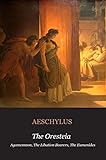 His claims are invested in an understanding of the Greeks as not being fundamentally that different from us, writing that “there is a lamentable tendency to exoticize Attic tragedy,” but maybe what’s actually called for is a defamiliarization of our own culture, an embrace of the irrational weirdness at the core of what it means to be alive 2019, where everything that is solid melts into air (to paraphrase Marx). Aeschylus knew the score well; “Hades, ruler of the nether sphere, / Exactest auditor of human kind, / Graved on the tablet of his mind,” as he describes the prince of this world in Eumenides. Critchley, I’d venture, is of Dionysius’s party but doesn’t know it. All that is argued in Tragedy, the Greeks, and Us points towards an awareness, however sublimated, of the dark beating heart within the undead cadaver’s chest. “To resist Dionysius is to repress the elemental in one’s own nature,” writes the classicist E.R. Dodds in his seminal The Greeks and the Irrational, “the punishment is the sudden complete collapse of the inward dykes when the elemental breaks through…and civilization vanishes.”
His claims are invested in an understanding of the Greeks as not being fundamentally that different from us, writing that “there is a lamentable tendency to exoticize Attic tragedy,” but maybe what’s actually called for is a defamiliarization of our own culture, an embrace of the irrational weirdness at the core of what it means to be alive 2019, where everything that is solid melts into air (to paraphrase Marx). Aeschylus knew the score well; “Hades, ruler of the nether sphere, / Exactest auditor of human kind, / Graved on the tablet of his mind,” as he describes the prince of this world in Eumenides. Critchley, I’d venture, is of Dionysius’s party but doesn’t know it. All that is argued in Tragedy, the Greeks, and Us points towards an awareness, however sublimated, of the dark beating heart within the undead cadaver’s chest. “To resist Dionysius is to repress the elemental in one’s own nature,” writes the classicist E.R. Dodds in his seminal The Greeks and the Irrational, “the punishment is the sudden complete collapse of the inward dykes when the elemental breaks through…and civilization vanishes.”
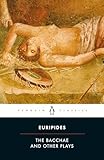 Absolutely correct that tragedy is in opposition to philosophy; where the latter offers assurances that reason can see us through, the former knows that it’s never that simple. The abyss is patient and deep, and no amount of analysis, of interpretation, of calculation, of polling can totally account for the hateful tragic pulse of our fellow humans. Nietzsche writes “what changes come upon the weary desert of our culture, so darkly described, when it is touched by…Dionysius! A storm seizes everything decrepit, rotten, broken, stunted; shrouds it in a whirling red cloud of dusty and carries it into the air like a vulture.” If any place best exemplifies that experience, and this moment, it’s Euripides’s The Bacchae, to which Critchley devotes precious little attention. That play depicts the arrival of that ambiguous god Dionysius to Thebes, as his followers thrill to the divine and irrational ecstasies that he promises. It ends with a crowd of those followers, the Maenads, mistaking the ruler Pentheus for a sacrificial goat and pulling him apart, his bones from their sockets, his organs from their cavities. Until his murder, Pentheus simultaneously manifested a repressed thrill towards the Dionysian fervor and a deficiency in taking the threat of such uncontained emotion seriously. “Cleverness is not wisdom,” Euripides writes, “And not to think mortal thoughts is to see few days.” If any didactic import comes from The Bacchae, it’s to give the devil as an adversary his due, for irrationality has more power than the clever among us might think.
Absolutely correct that tragedy is in opposition to philosophy; where the latter offers assurances that reason can see us through, the former knows that it’s never that simple. The abyss is patient and deep, and no amount of analysis, of interpretation, of calculation, of polling can totally account for the hateful tragic pulse of our fellow humans. Nietzsche writes “what changes come upon the weary desert of our culture, so darkly described, when it is touched by…Dionysius! A storm seizes everything decrepit, rotten, broken, stunted; shrouds it in a whirling red cloud of dusty and carries it into the air like a vulture.” If any place best exemplifies that experience, and this moment, it’s Euripides’s The Bacchae, to which Critchley devotes precious little attention. That play depicts the arrival of that ambiguous god Dionysius to Thebes, as his followers thrill to the divine and irrational ecstasies that he promises. It ends with a crowd of those followers, the Maenads, mistaking the ruler Pentheus for a sacrificial goat and pulling him apart, his bones from their sockets, his organs from their cavities. Until his murder, Pentheus simultaneously manifested a repressed thrill towards the Dionysian fervor and a deficiency in taking the threat of such uncontained emotion seriously. “Cleverness is not wisdom,” Euripides writes, “And not to think mortal thoughts is to see few days.” If any didactic import comes from The Bacchae, it’s to give the devil as an adversary his due, for irrationality has more power than the clever among us might think.
Circling around the claims of Critchley’s book is our current political situation, alluded to but never engaged outright. In one sense, that’s for the best; those demons’ names are uttered endlessly all day anyhow. It’s desirable to at least have one place where you need not read about them. But in another manner, fully intuiting the Dionysian import of tragedy becomes all the more crucial when we think about what that dark god portends in our season of rising authoritarianism. “Tragedy is democracy turning itself into a spectacle,” and anyone with Twitter will concur with that observation of Critchley’s. Even more important is Critchley’s argument about those mystic chords of memory connecting us to a past that we continually reinvent; the brilliance of his claim about why the Greeks matter to us now, removing the stuffiness of anything as prosaic as canonicity, is that tragedy encapsulates the way in which bloody trauma can vibrate through the millennia and control us as surely as the ancients believed fate controlled humans. Critchley writes that “Tragedy is full of ghosts, ancient and modern, and the line separating the living from the dead is continually blurred. This means that in tragedy the dead don’t stay dead and the living are not fully alive.” We can’t ignore the Greeks, because the Greeks aren’t done with us. If there is anything that hampers us as we attempt to extricate the Dionysian revelers in our midst, it’s that many don’t acknowledge the base, chthonic power of such irrationality, and they refuse to see how violence, hate, and blood define our history in the most horrific of ways. To believe that progress, justice, and rationality are guaranteed, that they don’t require a fight commensurate with their worthiness, is to let a hubris fester in our souls and to court further tragedy among our citizens.
 What Medea or The Persians do is allow us to safely access the Luciferian powers of irrationality. They present a more accurate portrayal of humanity, based as we are in bloodiness and barbarism, than the palliatives offered by Plato in The Republic with his philosopher kings. Within that space of the theater, Critchley claims that at its best it “somehow allows us to become ecstatically stretched out into another time and space, another way of experiencing things and the world.” Far from the anemic moralizing of Aristotelian catharsis—and Critchley emphasizes just how ambiguous that word actually is—that is too often interpreted as referring to a regurgitative didacticism, tragedy actually makes a new world by demolishing and replacing our world, if only briefly. “If one allows oneself to be completely involved in what is happening onstage,” Critchley writes, “one enters a unique space that provides an unparalleled experience of sensory and cognitive intensity that is impossible to express purely in concepts.” I recall seeing a production of Shakespeare’s Othello at London’s National Theatre in 2013, directed by Nicholas Hytner and starring Adrian Lester as the cursed Moor and Rory Kinear as a reptilian Iago. Dr. Johnson wrote that Othello’s murder of Desdemona was the single most horrifying scene in drama, and I concur; the play remains the equal of anything by Aeschylus or Euripides in its tragic import.
What Medea or The Persians do is allow us to safely access the Luciferian powers of irrationality. They present a more accurate portrayal of humanity, based as we are in bloodiness and barbarism, than the palliatives offered by Plato in The Republic with his philosopher kings. Within that space of the theater, Critchley claims that at its best it “somehow allows us to become ecstatically stretched out into another time and space, another way of experiencing things and the world.” Far from the anemic moralizing of Aristotelian catharsis—and Critchley emphasizes just how ambiguous that word actually is—that is too often interpreted as referring to a regurgitative didacticism, tragedy actually makes a new world by demolishing and replacing our world, if only briefly. “If one allows oneself to be completely involved in what is happening onstage,” Critchley writes, “one enters a unique space that provides an unparalleled experience of sensory and cognitive intensity that is impossible to express purely in concepts.” I recall seeing a production of Shakespeare’s Othello at London’s National Theatre in 2013, directed by Nicholas Hytner and starring Adrian Lester as the cursed Moor and Rory Kinear as a reptilian Iago. Dr. Johnson wrote that Othello’s murder of Desdemona was the single most horrifying scene in drama, and I concur; the play remains the equal of anything by Aeschylus or Euripides in its tragic import.
When I watched Lester play the role, lingering over the dying body of his faithful wife, whispering “What noise is this? Not dead—not yet quite dead?” I thought of many things. I thought about how Shakespeare’s play reflects the hideous things that men do to women, and the hideous things that the majority do to the marginalized. I thought about how jealousy noxiously fills every corner, no matter how small, like some sort of poison gas. And I thought about how unchecked malignancy can shatter our souls. But mostly what I thought wasn’t in any words, but was better expressed by Lester’s anguished cry as he confronted the evil he’d done. If tragedy allows for an audience to occasionally leave our normal space and time, then certainly I felt like I was joined with those thousand other spectators on that summer night at South Bank’s Olivier Theatre. The audience’s silence after Othello’s keening subsided was as still as the space between atoms, as empty as the gap between people.









